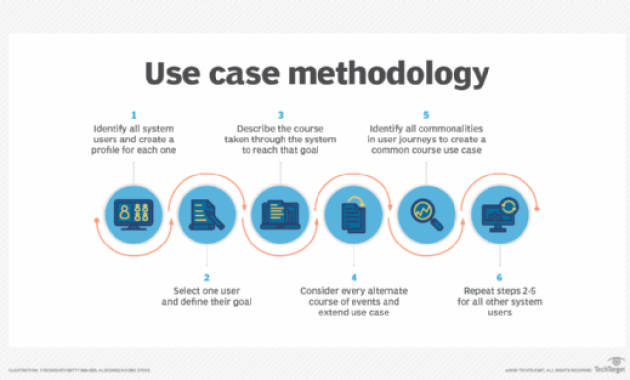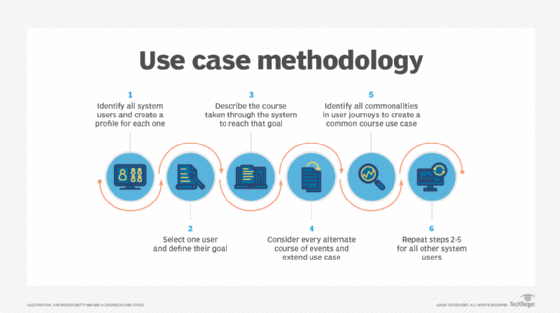
Use Cases for Business Intelligence Software in 2025: A Look Ahead
The landscape of business is rapidly evolving. Data is the new currency, and the ability to harness its power is paramount. Business Intelligence (BI) software is at the forefront of this transformation. In 2025, the applications of BI software will be more diverse. This article explores the key use cases for Business Intelligence software in 2025, offering insights into how businesses can leverage data for a competitive edge. We’ll examine how BI software is poised to revolutionize decision-making across various industries. This includes everything from retail to healthcare.
Enhanced Decision-Making Across All Departments
One of the primary use cases for Business Intelligence software in 2025 will be in enhancing decision-making. BI tools provide real-time insights. These insights empower all departments within an organization. Marketing teams can analyze campaign performance. Sales teams can identify high-potential leads. Finance departments can forecast future financial trends. Operations can optimize supply chains. This integrated approach leads to more informed choices.
Consider a retail company using BI software. They can analyze sales data. They can identify the best-selling products. They can also optimize inventory levels. This results in reduced waste and increased profits. The software’s ability to process vast amounts of data is a key benefit. It transforms raw data into actionable intelligence. This is critical for strategic planning and execution.
Predictive Analytics and Forecasting Capabilities
Predictive analytics will be a central use case for Business Intelligence software in 2025. BI tools are evolving to provide predictive capabilities. They are going beyond descriptive reporting. Companies can forecast future trends. They can also anticipate market changes. This allows businesses to proactively adjust their strategies. They can also seize new opportunities.
For example, a healthcare provider can use BI software to predict patient volume. They can also anticipate resource needs. This can improve patient care. It can also optimize staffing levels. Manufacturing companies can use predictive analytics. They can predict equipment failures. This will allow for proactive maintenance. This reduces downtime and lowers operational costs. The ability to anticipate future events is a significant advantage. It allows businesses to stay ahead of the curve. This is especially true in volatile markets.
Personalized Customer Experiences
Personalization is becoming increasingly important. This is a key use case for Business Intelligence software in 2025. BI software enables businesses to understand customer behavior. It allows them to tailor experiences. This can be done through targeted marketing campaigns. Businesses can also offer customized product recommendations. They can also provide personalized customer service. This leads to increased customer satisfaction and loyalty.
E-commerce companies can use BI software to analyze customer purchase history. They can also analyze browsing behavior. This allows them to recommend relevant products. This increases the likelihood of a sale. Banks can use BI software to personalize financial product offerings. They can offer customized services. This improves customer relationships. Personalized experiences are now expected. They are becoming a critical factor in customer retention.
Supply Chain Optimization
Efficient supply chain management is vital for business success. This is another important use case for Business Intelligence software in 2025. BI tools can provide end-to-end visibility into the supply chain. They can track inventory levels. They can also monitor the movement of goods. This enables businesses to identify bottlenecks. They can also optimize logistics. This results in reduced costs and improved efficiency.
A food and beverage company can use BI software. They can track the freshness of ingredients. They can also monitor the transportation of goods. This ensures product quality. It also minimizes waste. Retailers can use BI software to manage inventory. They can also predict demand. This reduces the risk of overstocking or stockouts. This ensures products are available when customers need them. A well-managed supply chain is a competitive advantage.
Risk Management and Fraud Detection
Managing risk and preventing fraud are essential. This is a crucial use case for Business Intelligence software in 2025. BI software can analyze data in real-time. It can identify suspicious patterns. It can also detect fraudulent activities. This protects businesses from financial losses. It also safeguards their reputation.
Financial institutions can use BI software. They can detect fraudulent transactions. They can also monitor compliance with regulations. Insurance companies can use BI software. They can identify fraudulent claims. They can also assess risk more accurately. This helps to reduce losses. It also ensures compliance. Robust risk management is vital in today’s environment.
Compliance and Regulatory Reporting
Staying compliant with regulations is a challenge. This is a significant use case for Business Intelligence software in 2025. BI software can automate reporting processes. It can also ensure data accuracy. This helps businesses meet regulatory requirements. It also minimizes the risk of penalties.
Pharmaceutical companies can use BI software. They can track clinical trial data. They can also ensure compliance with FDA regulations. Healthcare providers can use BI software. They can generate reports for audits. They can also ensure patient data privacy. Effective compliance is essential for business operations.
Data-Driven Product Development
Product development is becoming more data-driven. This is a key use case for Business Intelligence software in 2025. BI software can analyze customer feedback. It can also analyze market trends. This allows companies to make informed decisions about product features. It also allows them to improve product design. This leads to products that meet customer needs.
Technology companies can use BI software. They can analyze user behavior. They can also gather feedback on their products. This helps them to identify areas for improvement. It also guides the development of new features. Consumer goods companies can use BI software. They can analyze market trends. They can also identify unmet customer needs. This enables them to develop successful products. Data-driven product development is now the norm.
Improving Operational Efficiency
Operational efficiency is crucial for profitability. This is a central use case for Business Intelligence software in 2025. BI tools can help identify inefficiencies. They can also streamline processes. This results in cost savings and improved productivity.
Manufacturing plants can use BI software. They can analyze production data. They can also identify areas for improvement. This reduces waste. It also increases output. Service companies can use BI software. They can optimize resource allocation. They can also improve customer service workflows. This leads to better service delivery. It also improves operational performance.
The Role of AI and Machine Learning
Artificial intelligence (AI) and machine learning (ML) are reshaping BI. They are a crucial aspect of the use cases for Business Intelligence software in 2025. AI and ML algorithms can automate data analysis. They can also uncover hidden insights. This enables businesses to gain a deeper understanding of their data. This leads to more informed decision-making.
AI-powered BI tools can automate reporting. They can also provide proactive insights. They can also identify anomalies in data. Machine learning models can predict future trends. They can also automate complex tasks. This frees up human analysts. They can focus on strategic initiatives. AI and ML are transforming the capabilities of BI software. They are making it more powerful and insightful.
Key Features to Consider
As businesses plan for 2025, they need to consider key features. These features will be essential for BI software. These features are crucial for maximizing its benefits. Data visualization tools are critical. They transform data into easily understandable visuals. Interactive dashboards are also important. They allow users to explore data in real-time. Mobile access is crucial. It allows users to access insights from anywhere. Integration capabilities are essential. They allow BI tools to connect with other systems. Cloud-based deployment offers scalability and flexibility. Security features are paramount. They protect sensitive data. These features will be key to the successful implementation of BI software.
Choosing the Right BI Software
Selecting the right BI software is crucial. Businesses should carefully evaluate their needs. They should also consider their budget. They need to assess the capabilities of different BI solutions. They should consider ease of use. They should also consider the vendor’s reputation. They need to consider the support they will receive. They also need to consider the scalability of the software. They should also consider integration capabilities. [See also: How to Choose the Right BI Software]
The Future of Business Intelligence
The use cases for Business Intelligence software in 2025 are vast. They are also constantly expanding. As data becomes more central, so will BI. Businesses that embrace BI tools will be well-positioned. They will be able to make better decisions. They will also gain a competitive advantage. They can also improve their operational efficiency. BI software is no longer a luxury. It is a necessity. It is essential for businesses that want to thrive in the future.
In conclusion, the strategic deployment of BI software is essential. It is essential for success in 2025. By focusing on the use cases for Business Intelligence software in 2025, businesses can unlock the true potential. They can unlock the power of their data. They can drive innovation. They can also achieve sustainable growth. The future of business is data-driven. Business Intelligence software is key.
